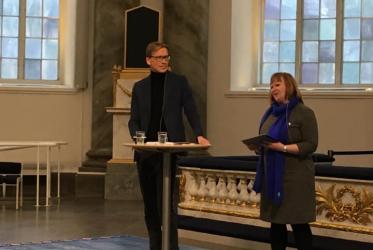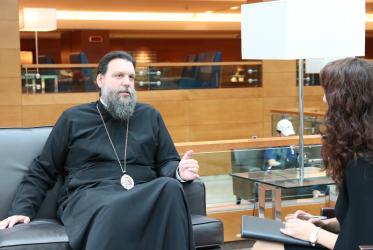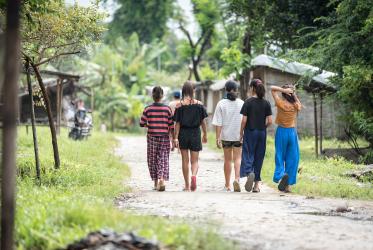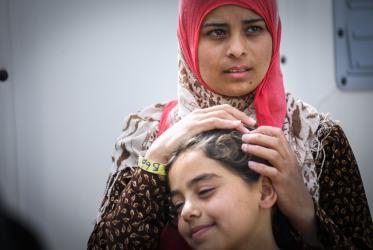Displaying 21 - 40 of 68
A faith-based, holistic approach to HIV and AIDS-care
13 March 2019
Faith and HIV treatment go hand in hand
06 March 2019
Turning mercy and compassion into action
04 March 2019
On the journey to HIV – bridging gaps, debunking myths
21 February 2019
Ecumenism is a sense of belonging
08 February 2019
Christian communicators work to counter hate speech against refugees
10 December 2018
Film “Ayka” wins Interfilm award
13 November 2018
WCC Executive Committee envisions future for one ecumenical movement
08 November 2018
Children on the Move forum gathers in Rome
16 October 2018
Romani people seek “lives of decency, dignity, and justice”
27 September 2018
Paving the way for ecumenical studies, learning English in Bossey
24 September 2018
Not just numbers, displaced people need to share their stories
01 February 2018
Bishop Helga - diaconal apostle
22 December 2017











